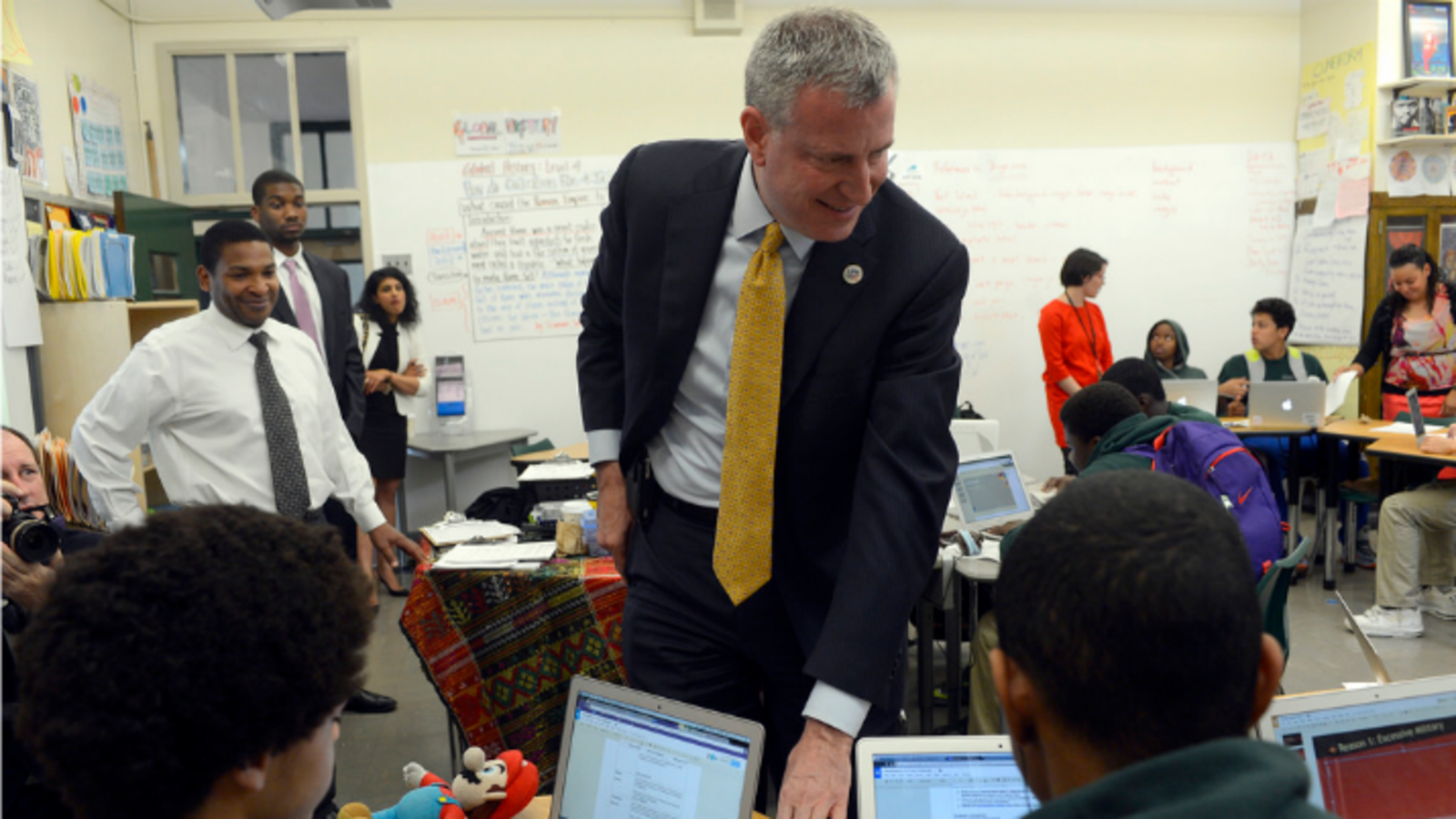Mayor Bill de Blasio told state lawmakers on Wednesday that he wants the city’s schools to be permanently controlled by the mayor, a move that would end the cycle of renewing that state law every few years and illustrates a growing consensus about how the city’s schools should be governed.
“Before mayoral control, the city’s school system was balkanized,” de Blasio said. “School boards exerted great authority with little accountability and we saw far too many instances of mismanagement, waste and corruption.”
Making mayoral control permanent “would build predictability into the system, which is important for bringing about the deep, long-range reforms that are needed,” de Blasio added.
In more than 10 minutes of testimony dedicated to education policy — a central focus of Gov. Andrew Cuomo’s budget plan this year — the mayor aggressively defended his record on education over his first year in office. He emphasized his administration’s commitment to closing low-performing schools after giving them time to improve and the city’s commitment to removing low-performing teachers from the classroom, and he rejected a state-takeover model that Cuomo has proposed for struggling districts and schools.
“The fact is that mayoral control already makes clear who is responsible for struggling schools in New York City. I am,” he said. “I am fully accountable to the people of New York City and if they do not believe I have succeeded they will have the opportunity not to renew my contract” in the 2017 mayoral election.
“Mayor Bloomberg and I agree on this,” he added.
Current law gives the mayor the power to appoint a schools chancellor, oversee the system’s $20 billion operating budget, and make decisions about how the city will try to lift student achievement across 1,600 district schools. The landmark legislation passed in 2002 after Mayor Michael Bloomberg’s election and amid a bipartisan wave of support for dismantling the city’s 32 local school boards. The law also created a citywide board, now called the Panel for Educational Policy, which votes on policy decisions.
The law first expired in 2009, spurring a months-long debate about whether mayor control had had a positive effect on the city’s schools. De Blasio, then a city councilman, was among those who criticized the way it had been implemented under Bloomberg.
Mayoral control was renewed that year, though lawmakers were unable to settle on revisions before the “sunset” deadline. They ultimately revised the law to limit the mayor’s power in a few relatively minor ways, such as by creating a public review process for when the city decides to close or move a school.
The law is set to expire again in June, and Gov. Cuomo has expressed his support for extending it for three years.

